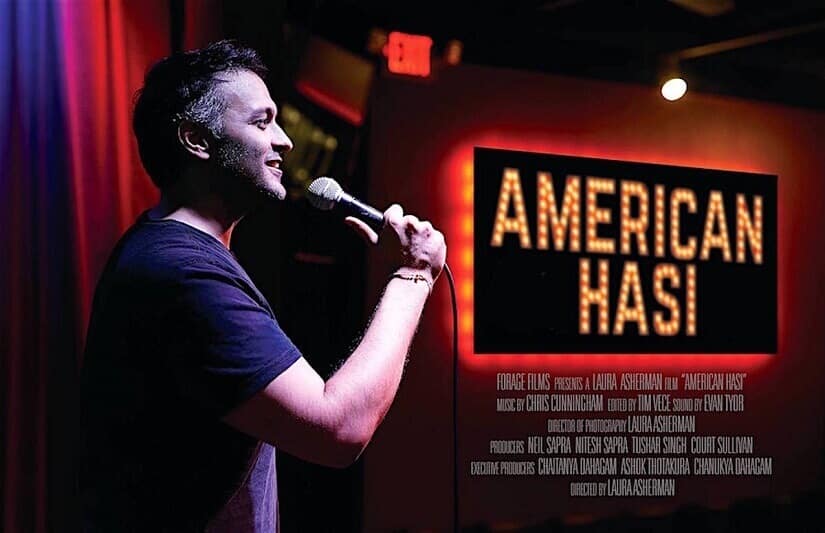Language: English Traversing cultures can be a difficult ask, but stand-up comedy documentary American Hasi, directed by Laura Asherman, is not concerned with that difficulty. [caption id=“attachment_7103721” align=“alignnone” width=“825”]  Tushar Singh in a still from American Hasi. YouTube[/caption] The film follows American-born Indian comedian Tushar Singh, as he returns to India to perform for sparse crowds as a means to find himself. Though while Singh’s spiritual journey takes center stage — the Alabama native feels he’s been floating through life for too long — his month-long Indian tour feels more akin to an extended home movie than a film with personal insight. That said, while the excursion lacks both the excitement of a travel doc and the gravitas of cross-cultural storytelling, it succeeds in capturing the awkward, uncomfortable moments where its subject is forced to confront his mediocrity. The film begins by contrasting Singh’s family-centric stand-up routine with old videos of his late father, like an explanation or backstory for jokes that don’t quite land. You get where he’s coming from, or at least, what he’s trying to achieve. Singh himself is requisitely charming, though his hesitance to perform in India (which he and his Indian American friends refer to as a “fart cloud”) feels in oddly poor taste, given that he’s visited before. How the place and people might receive Singh — and how he might receive them — is approached akin to mystery, though the film’s floating camera doesn’t seem interested in what India actually is, or what it means for Singh. There’s an auto-pilot feel to how the performances are captured. The film neither highlights the tension in the air when Singh, a self-professed outsider, takes the unfamiliar stage, nor does it seek to explore what elements of his performance might work or fail, or how audiences might react. Instead of augmenting Singh’s introspection, the film leaves it off-screen and behind closed doors. It skips to moments where Singh has come to realise what he needs to do next, how he needs to fine-tune and adjust his set, but what ought to be a difficult and reflective emotional process is reduced to talking heads. Its edit is haphazard, jumping forward as if to adhere to “chronology” over anything resembling rhythm. In the process, it jumbles what seems like a genuinely interesting story. Singh is, and has been, searching for purpose. After losing his day job in the US, he’s forced to make a decision and go all-in on comedy, albeit in a different setting. Yet the way he acclimates to this setting (different Indian cities that the camera flattens to a singular mass) is obscured — as is the way he might wrestle with what parts of his material, and himself, to put on display. Just when the film seems like it’s about dive into his vulnerabilities, it moves on to some other setting. Some other un-connected happenstance, a new part of Singh’s story, is now forced to play like a vignette. By the time Singh returns to India again and visits his father’s village, the through-line linking his artistic endeavours to this familial rediscovery feels flimsy at best. With occasional left turns towards comedy censorship and brief interviews with other comics (popular names include Vir Das, Bill Burr and Russell Peters), American Hasi has issues and ideas at the tip of its tongue. Instead of exploring them, it takes the potentially riveting tale of a man wrestling with himself — his persona, his legacy, his place in the world — and reduces it to a series of random events captured from afar. Singh’s jokes go from being met with awkward silence to receiving applause. Though we’re barely allowed to hear them, let alone sit in on his process of improvement (beyond a brief mention that he’s going to try harder). The film is at its most powerful when forcing a post-performance Singh stew uncomfortably in his failure. But what does he actually do with this? How does he move on from it? These are vital questions which remain unexplored. American Hasi was screened at The Asian American International Film Festival, which runs from 25 July to 2 August in New York. Rating: **1/2
American Hasi was screened at The Asian American International Film Festival, which runs from 25 July to 2 August in New York.
Advertisement
End of Article


)
)
)
)
)
)
)
)
)



